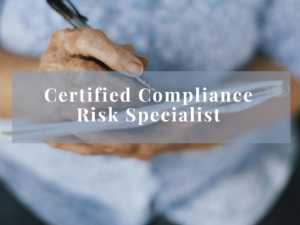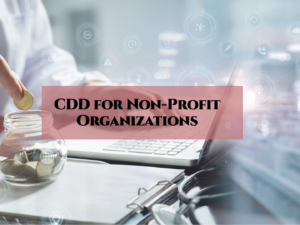Certified Due Diligence Specialist in High Net-Worth Individuals (CDD-HNWI)
- Description
- Curriculum
- FAQ
- Announcement
- Reviews

The Certified Due Diligence Specialist in High Net-Worth Individuals (CDD-HNWI) certification is a highly regarded credential that equips professionals with specialized expertise in managing customer due diligence (CDD) for high-net-worth clients. This certification addresses the unique compliance and risk management challenges associated with HNWIs, emphasizing the importance of adhering to AML (Anti-Money Laundering) and KYC (Know Your Customer) standards. With a strong foundation in international regulations such as FATF and jurisdictional requirements, the CDD-HNWI certification prepares candidates to navigate the complexities of high-value client relationships. This program provides practical insights into regulatory standards, risk assessment techniques, and enhanced due diligence processes tailored to high-net-worth profiles. By earning the CDD-HNWI certification, professionals will demonstrate a sophisticated understanding of compliance practices specific to high-net-worth individuals, making them valuable assets to financial institutions, wealth management firms, and compliance teams. This program’s comprehensive approach enables candidates to effectively identify, assess, and mitigate financial crime risks associated with HNWIs, contributing to a more secure and compliant financial landscape.
Enrollment Procedure
Enrolling in the CDD-HNWI program is straightforward and fully online. Follow these steps to begin:
- Visit the Enrollment Page: Navigate to our website and select the CDD-HNWI program.
- Click on “Enroll Now”: Register by providing your name and email address.
- Complete Payment: Use our secure payment gateway to finalize your registration. Once payment is confirmed, you will gain access to course materials.
- Access Course Materials: You will receive immediate access to the Learning Management System (LMS), where you can view course videos and download the e-book.
- Final Exam: When ready, attempt the final exam directly from the LMS. The exam consists of 60 multiple-choice questions (MCQs) and is closed-book, with a time limit of 50 minutes to assess your understanding of due diligence for high-net-worth individuals.
- Exam Attempts: You have 2 attempts to pass. Additional attempts can be purchased at a fee of $14 USD per attempt.
- Instant Results: After completing the exam, your results will be available immediately. Upon passing, you can instantly download your certification.
Syllabus
Section 1: Understanding High Net-Worth Individuals and Regulatory Requirements
- Chapter 1: Profile of High Net-Worth Individuals (HNWIs)
- Defining HNWIs and ultra-high-net-worth individuals (UHNWIs)
- Wealth sources, financial profiles, and unique risk factors associated with HNWIs
- Types of HNWIs (e.g., private investors, family offices, and high-profile clients)
- Chapter 2: Regulatory Frameworks and Compliance Standards
- Overview of global AML/KYC standards applicable to HNWIs
- FATF guidelines, tax transparency laws, and international regulatory expectations
- Jurisdictional nuances and compliance obligations for managing HNWI clients
Section 2: Due Diligence Processes and Enhanced Risk Assessment
- Chapter 3: Customer Due Diligence (CDD) for HNWIs
- KYC requirements specific to high-net-worth clients
- Identification, verification, and documentation processes tailored to HNWIs
- Enhanced due diligence (EDD) measures and source of wealth/ funds verification
- Chapter 4: Risk Assessment and Mitigation Strategies
- Conducting risk assessments based on HNWI profiles and transactional behavior
- Identifying high-risk indicators (political exposure, complex asset structures, etc.)
- Developing and implementing risk-based strategies for HNWI relationships
Section 3: Advanced Compliance Practices and Continuous Monitoring
- Chapter 5: Ongoing Monitoring and Transaction Review
- Implementing transaction monitoring frameworks for HNWI clients
- Identifying and responding to red flags in HNWI transactions
- Conducting event-driven reviews and periodic assessments
- Chapter 6: Documentation, Reporting, and Record-Keeping
- Best practices for maintaining comprehensive records and audit trails
- Regulatory requirements for reporting suspicious activities related to HNWIs
- Documentation techniques to ensure compliance with evolving standards
No Notice







